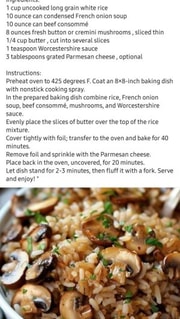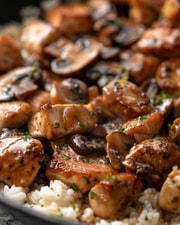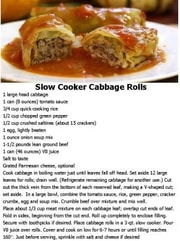Could your kitchen staple be increasing cancer risks? Find out what experts are saying
By
Maan
- Replies 0
A warning from one of Britain’s leading cancer experts has raised concerns over something many of us use daily in the kitchen—cooking oils.
What you may not know is that certain oils, often considered healthy, could be linked to an increased risk of an aggressive form of breast cancer.
New research has highlighted the potential dangers of seed oils, prompting a closer look at how everyday ingredients could impact our health.
A growing body of research has raised alarms over the potential dangers of seed oils, which are commonly found in kitchens across the globe.
These oils, which include soybean, sunflower, and corn oils, are rich in linoleic acid—a fat that scientists have linked to the development of an aggressive form of breast cancer.
Professor Justin Stebbing, an oncologist and leading expert in cancer research, warned that linoleic acid could stimulate cancer cells when heated, leading to accelerated growth.
He emphasised that home cooks should 'moderate' their consumption of seed oils, particularly for individuals who are at a higher risk of developing cancer.
Professor Stebbing noted that oils like olive oil, which contain lower levels of linoleic acid, are a better option.
In a recent study, Professor Stebbing pointed to research from Weill Cornell Medicine, which highlighted the significant cancer risk posed by linoleic acid.
The study showed that when mice with triple-negative breast cancer were fed a diet high in linoleic acid, they developed larger tumours compared to those fed a placebo.
Triple-negative breast cancer is the deadliest form of the disease, accounting for around 15 per cent of breast cancer cases in both the UK and the US.
The research found that linoleic acid overstimulated the 'control centre' of cells, fuelling the growth of breast cancer cells.
Dr John Blenis, the study’s senior author, explained: 'We now know that linoleic acid feeds cancer cell growth in a very specific way.'
The study also revealed a connection to humans, with elevated linoleic acid levels found in the blood samples of patients diagnosed with triple-negative breast cancer.
Professor Stebbing stressed the importance of moderation when consuming seed oils, advising that the findings did not warrant a complete avoidance of these oils.
While the research points to linoleic acid as a critical factor in cancer growth, it is only one part of a much larger puzzle.
A balanced, wholefood diet remains essential for cancer prevention, and should be a key focus for everyone, especially those at high risk.
In light of this, Stebbing advised that consuming more fruits and vegetables would be a beneficial part of a healthy diet.
Despite some oils being marketed for their health benefits—such as boosting heart and brain health—others, such as seed oils, have long been criticised for their potential to release harmful chemicals that are linked to diseases like arthritis and dementia.
There are also concerns that seed oils may contribute to inflammation, which in turn could facilitate the growth of cancer tumours.
Recent studies have shown that men with early-stage prostate cancer who consumed fewer vegetable oils experienced slower tumour growth than those who stuck to a standard Western diet.
According to Professor Stebbing, while the research was significant, it required careful interpretation to avoid unnecessary panic or alarm.
Cancer remains one of the leading health challenges in the UK, with one in seven women expected to be diagnosed with the disease in their lifetime.
Triple-negative breast cancer is notoriously difficult to treat, as it doesn’t interact with hormones like oestrogen, which are targeted by many breast cancer treatments.
Symptoms of breast cancer to be aware of include lumps, changes in skin colour, swelling, and discharge, particularly around the nipple area.
Professor Stebbing’s report comes after other studies have raised concerns about seed oils’ role in promoting cancer tumour growth.
In December, research found that reducing vegetable oil intake in men with early prostate cancer resulted in slower cancer progression.
Around 23 per cent of breast cancer cases in the UK are believed to be preventable, with factors like obesity and excessive alcohol consumption contributing to the risk.
Although getting older is the most significant risk factor for cancer, with the accumulation of DNA damage over time, access to fast diagnosis and treatment is essential for improving outcomes.
However, cancer care figures in the NHS have revealed that only 67 per cent of newly-diagnosed patients referred for urgent treatment were seen within the required 62 days, well below the 85 per cent target.
In a previous story, we shared the heartbreaking experience of a woman whose breast cancer diagnosis was delayed by 10 months due to a missed email.
Her case highlights just how critical timely communication and follow-up can be in cancer care.
You can read more about her experience here.

With the growing concern around seed oils, do you think it's time to rethink what we cook with? Share your thoughts in the comments below.
What you may not know is that certain oils, often considered healthy, could be linked to an increased risk of an aggressive form of breast cancer.
New research has highlighted the potential dangers of seed oils, prompting a closer look at how everyday ingredients could impact our health.
A growing body of research has raised alarms over the potential dangers of seed oils, which are commonly found in kitchens across the globe.
These oils, which include soybean, sunflower, and corn oils, are rich in linoleic acid—a fat that scientists have linked to the development of an aggressive form of breast cancer.
Professor Justin Stebbing, an oncologist and leading expert in cancer research, warned that linoleic acid could stimulate cancer cells when heated, leading to accelerated growth.
He emphasised that home cooks should 'moderate' their consumption of seed oils, particularly for individuals who are at a higher risk of developing cancer.
Professor Stebbing noted that oils like olive oil, which contain lower levels of linoleic acid, are a better option.
In a recent study, Professor Stebbing pointed to research from Weill Cornell Medicine, which highlighted the significant cancer risk posed by linoleic acid.
The study showed that when mice with triple-negative breast cancer were fed a diet high in linoleic acid, they developed larger tumours compared to those fed a placebo.
Triple-negative breast cancer is the deadliest form of the disease, accounting for around 15 per cent of breast cancer cases in both the UK and the US.
The research found that linoleic acid overstimulated the 'control centre' of cells, fuelling the growth of breast cancer cells.
Dr John Blenis, the study’s senior author, explained: 'We now know that linoleic acid feeds cancer cell growth in a very specific way.'
The study also revealed a connection to humans, with elevated linoleic acid levels found in the blood samples of patients diagnosed with triple-negative breast cancer.
Professor Stebbing stressed the importance of moderation when consuming seed oils, advising that the findings did not warrant a complete avoidance of these oils.
While the research points to linoleic acid as a critical factor in cancer growth, it is only one part of a much larger puzzle.
A balanced, wholefood diet remains essential for cancer prevention, and should be a key focus for everyone, especially those at high risk.
In light of this, Stebbing advised that consuming more fruits and vegetables would be a beneficial part of a healthy diet.
Despite some oils being marketed for their health benefits—such as boosting heart and brain health—others, such as seed oils, have long been criticised for their potential to release harmful chemicals that are linked to diseases like arthritis and dementia.
There are also concerns that seed oils may contribute to inflammation, which in turn could facilitate the growth of cancer tumours.
Recent studies have shown that men with early-stage prostate cancer who consumed fewer vegetable oils experienced slower tumour growth than those who stuck to a standard Western diet.
According to Professor Stebbing, while the research was significant, it required careful interpretation to avoid unnecessary panic or alarm.
Cancer remains one of the leading health challenges in the UK, with one in seven women expected to be diagnosed with the disease in their lifetime.
Triple-negative breast cancer is notoriously difficult to treat, as it doesn’t interact with hormones like oestrogen, which are targeted by many breast cancer treatments.
Symptoms of breast cancer to be aware of include lumps, changes in skin colour, swelling, and discharge, particularly around the nipple area.
Professor Stebbing’s report comes after other studies have raised concerns about seed oils’ role in promoting cancer tumour growth.
In December, research found that reducing vegetable oil intake in men with early prostate cancer resulted in slower cancer progression.
Around 23 per cent of breast cancer cases in the UK are believed to be preventable, with factors like obesity and excessive alcohol consumption contributing to the risk.
Although getting older is the most significant risk factor for cancer, with the accumulation of DNA damage over time, access to fast diagnosis and treatment is essential for improving outcomes.
However, cancer care figures in the NHS have revealed that only 67 per cent of newly-diagnosed patients referred for urgent treatment were seen within the required 62 days, well below the 85 per cent target.
In a previous story, we shared the heartbreaking experience of a woman whose breast cancer diagnosis was delayed by 10 months due to a missed email.
Her case highlights just how critical timely communication and follow-up can be in cancer care.
You can read more about her experience here.
Key Takeaways
- Certain cooking oils, especially seed oils, may increase the risk of aggressive breast cancer.
- Linoleic acid in oils like soybean, sunflower, and corn may fuel cancer cell growth.
- Moderating seed oil consumption, particularly for high-risk individuals, is advised by experts.
- A balanced diet, including fruits and vegetables, remains vital for cancer prevention.
With the growing concern around seed oils, do you think it's time to rethink what we cook with? Share your thoughts in the comments below.








